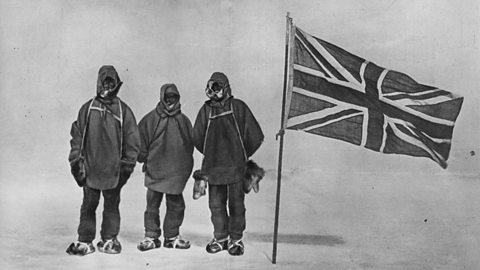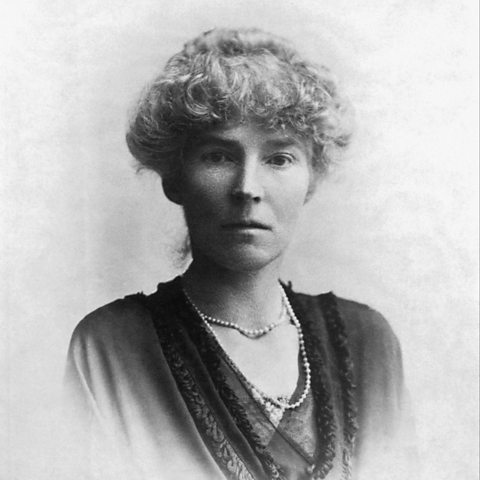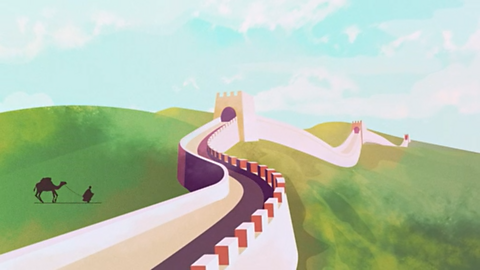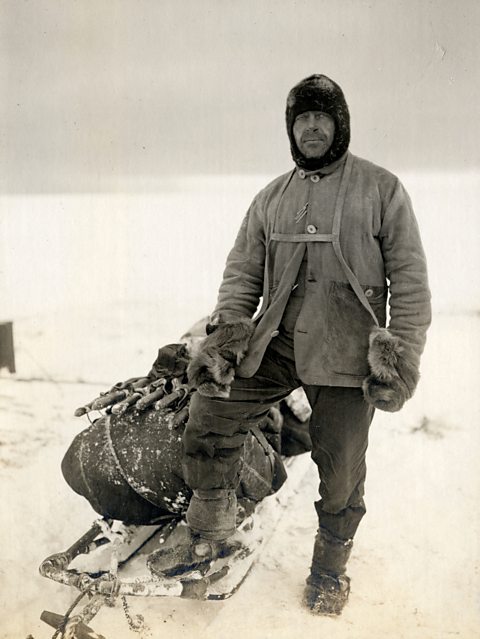The race to discover new places

Ernest Shackleton and two team members near the South Pole.
By the 19th and 20th centuries, countries became very proud of exploring.
They wanted to be the first country to discover new places and plant their national flag there.
Some of the explorers below lived at the same time and we can compare their stories.
With all of them, we can think about their experiences and what impact they had on other people.

Ernest Shackleton and two team members near the South Pole.
Important explorers

The explorer and archaeologist Gertrude Bell (1868-1926).
- Ibn Battuta was an explorer from Morocco who travelled many thousands of miles across the Middle East, Asia and China.
- Gertrude Bell travelled widely in Turkey and Iraq in the early 20th century.
- Ernest Shackleton (Irish), Robert Scott (British) and Roald Amundsen (Norwegian) were in competition to reach the South Pole, the last unexplored place on earth.
- Neil Armstrong was the first person to step on the Moon!
Timeline of exploration
| Date | Explorer and event |
|---|---|
| 1330s | Ibn Battuta journeys through Asia and China. |
| 1492 | Christopher Columbus travelled to land called 'The Americas'. |
| 1649 | Diego Velázquez travelled through Italy and collected art. |
| 1911-1912 | Scott and Amundsen race to the South Pole. |
| 1912-1917 | Shackleton tries to cross Antarctica in the ship Endurance. |
| 1963 | The first woman in space was Valentina Tereshkova (USSR). |
| 1969 | Neil Armstrong was the first person to walk on the Moon, followed by Buzz Aldrin. |
| 1993 | Ann Bancroft (US) became the first woman to reach both South and North Poles. |

Did you know?
 Image source, RGS
Image source, RGSCaptain Scott, Antarctica, 13th April 1911. Unfortunately he did not make it back from this expedition.
- Ibn Battuta travelled 72,000 miles. That's nearly as far as three times around Earth!
- Robert Scott died on his way back from the South Pole.
- Ernest Shackleton had a lifelong heart problem. However, it didn't stop him from leading several expeditions in Antarctica.
Activity – Explorers quiz
Play Bitesize Primary games. game
Fun and educational primary games in science, maths, English, history, geography, art and design, computing and modern languages.
